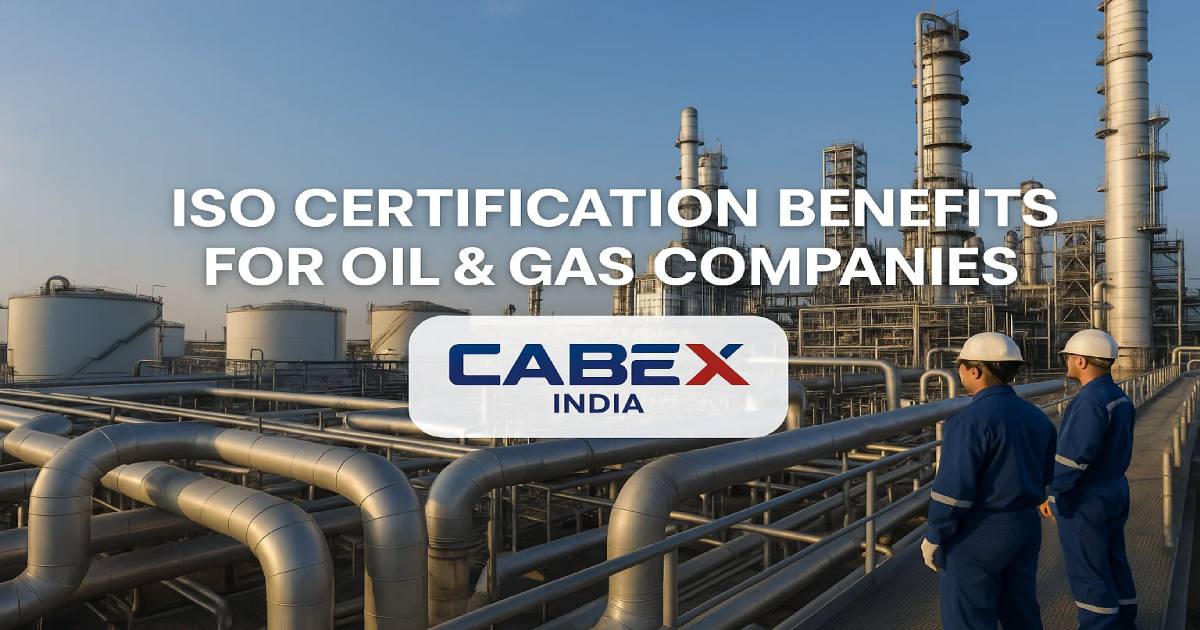Introduction
ISO certification has become an essential strategic asset for oil and gas companies worldwide. Due to the complex operational, environmental, and safety challenges inherent to the industry, adhering to ISO standards such as ISO 9001, ISO 45001, and ISO 14001 provides leadership with a structured framework to improve operational efficiency, mitigate risks, and strengthen compliance. For B2B stakeholders, including procurement officers, safety engineers, and contractors in India, the Middle East, and Europe, understanding the real-world benefits and applications of ISO certification is key to maintaining competitive advantage and business continuity.
What is ISO Certification?
ISO (International Organization for Standardization) develops international standards that specify requirements for management systems, product quality, safety, and environmental responsibility. In oil & gas, major certifications you will encounter include:
- ISO 9001: Quality management systems
- ISO 45001: Occupational health and safety
- ISO 14001: Environmental management
These certifications require rigorous audits, continual improvement processes, and transparent documentation to verify compliance.
Why ISO Certification Matters for Oil & Gas Companies
1. Enhanced Operational Efficiency
ISO standards streamline processes, reduce redundancy, and optimize resource allocation through the implementation of documented management systems.
- Real case: An Indian refinery reduced downtime by 15% after implementing ISO 9001.
- Process standardization fosters predictable, repeatable operations.
2. Heightened Safety and Risk Management
ISO 45001 focuses on proactive risk identification, accident prevention, worker safety protocols, and compliance with legal requirements.
- Example: A Middle East pipeline operator cut workplace accidents by 25% within two years of certification.
3. Environmental Sustainability and Compliance
ISO 14001 certification aligns companies with global environmental standards that reduce emissions, waste, and resource consumption.
- Helps meet stricter EU and regional environmental regulations.
- Positions companies as responsible corporate citizens.
4. Regulatory and Legal Compliance
ISO standards facilitate easier adherence to complex regulatory frameworks, avoiding fines and legal challenges globally.
- Supports cross-border operations with aligned compliance requirements.
5. Increased Market Trust and Business Opportunities
Certification signals credibility to investors, contractors, and clients—often a prerequisite in contract bidding and partnerships.
- ISO-certified firms get preferential treatment in tenders in MENA and Europe.
6. Support for Digital Transformation
Many ISO systems integrate data analytics and continuous monitoring, supporting smarter decision-making and innovation.
Key ISO Certifications for the Oil & Gas Sector
| Certification | Focus Area | Benefits for Oil & Gas |
| ISO 9001 | Quality Management | Improved product quality and operational flow |
| ISO 45001 | Occupational Health & Safety | Safer working environment, reduced accidents |
| ISO 14001 | Environmental Management | Lower environmental impact and compliance |
| ISO 50001 | Energy Management | Optimized energy use and cost savings |
Practical Advice for ISO Implementation in Oil & Gas
- Invest in comprehensive training for staff on standards and documentation.
- Conduct gap analysis to identify critical deficiencies before audits.
- Engage experienced certification bodies with industry expertise.
- Deploy integrated management systems to harmonize ISO with other compliance frameworks.
- Regularly review KPIs tied to certification goals.
Case Studies Highlighting ISO Certifications in Action
Large refinery in Gujarat attaining ISO 9001 and ISO 45001 saw operational costs drop by 12%, alongside a major safety culture improvement.
- UAE-based offshore drilling firm’s ISO 14001 certification helped avoid environmental penalties and gained new long-term contracts.
Conclusion
ISO certification is not just a regulatory tick-box for oil and gas companies—it is a strategic enabler of enhanced safety, efficiency, compliance, and business reputation on a global scale. Companies in India, the Middle East, and Europe that embrace these standards position themselves for resilience and growth amid the industry’s evolving demands.
FAQ
Q1: How long does it take for an oil & gas company to become ISO certified?
A: Typically 6-12 months depending on company size, readiness, and scope of certification.
Q2: Are ISO certifications mandatory in oil & gas?
A: No, but they are strongly preferred by regulators and clients worldwide.
Q3: How does ISO certification improve safety outcomes?
A: By enforcing systematic hazard identification, risk assessment, and employee training.
Q4: What are the common challenges in implementing ISO certification in oil and gas?
Common challenges include employee resistance, aligning existing processes, and managing documentation. Strong leadership and clear communication help overcome these issues.
Q5: How do companies maintain continuous compliance after getting ISO certified?
Continuous internal audits, management reviews, and regular training ensure ongoing compliance and improvement as per ISO standards.
Contact CabexIndia – Get Your Industrial-Grade Cable Glands & Accessories
Trusted. Certified. Ready to Support Your Projects Across India, the Middle East, and Europe.
- Address: Cabex Electrical Components, Plot No 4, GIDC, Phase-2, Dared, Jamnagar-361 004, GUJARAT (INDIA)
- Call: +91 98252 22330 | +91 99782 22330
- Email: export@cabexindia.com | kekin@cabexindia.com
You May Also Like: Types of Wire: Guide to Understanding, Cable Gland Installation Failures & Solutions






